- Home
- John Ellsworth
The Mental Case (Thaddeus Murfee Legal Thriller Series Book 6) Page 2
The Mental Case (Thaddeus Murfee Legal Thriller Series Book 6) Read online
Page 2
3) What about prosecuting the thief? Ansel believed that David had fled as soon as the money was wired out of the country. Ansel suspected he knew David's ultimate location. But Ansel wasn't telling. Tracking him down--that would come later.
4) Who would be legally responsible for the theft? Ansel and his ninety-nine partners were responsible for making good on that hole in the air. The math was first grade easy. Each owed $2 million. Every last dime.
* * *
Two hours later, rather than greet the FBI, Ansel remained hidden away in his corner office. The receptionists were to say he wasn't in yet. His curtains were wide open onto the blustery Chicago sky and the possibility of an airborne solution that might flap up against his windows. A solution was sorely needed; he was fresh out of ideas.
He considered the angles. David had violated Ansel's trust. But if Ansel turned him in, the partners would literally send hit men. That's how enraged they would be when he told them in fifteen minutes at Partners' Monday.
Just as he was considering a free fall from the seventy-eighth-floor, his desk phone flashed. He already knew who. The caller would have been informed by Accounting and immediately buzzed Ansel. And Ansel, in his role of managing partner, would be looked to for a simple remediation of the fiscal outflow. The partners would expect a solution to spring from his brain into the room and jump onto the electronic records of the accounting system and induce a great healing. They would actually expect him to replace the funds with brain power. Not to be.
"Ansel speaking. Let me guess, JM?"
The voice was depleted of hope. "We've got problems, Anse. My office, three minutes."
He hung up without waiting for confirmation. It was a given, it was assumed, that the managing partner would drop whatever lay before him and proceed without dalliance to JM's corner office at the far end of the galaxy.
It lit up again.
Melinda.
"Have you heard, Mr. Largent?" Her tone was breathless.
"I have heard from Accounting. Was that what you mean?"
"Suzanne Fairmont! She's in her office, dead! Cops are pouring in and putting up their yellow tape. A SWAT team grabbed an elevator and won't let anyone else ride it. We're being invaded!"
"Say again, slowly."
"She's dead!"
He felt his pulse race. Too coincidental. His son stole $200 million of their funds and a full partner had been shot in her office? Connected? Was David seeing her? What else might he not know about this flesh of his flesh?
"All right," he began slowly. "Tell me what you know, Mel."
"I'm coming in."
She hadn't asked to come into his throne room. She had announced it. There was no holding back all that was about to happen to Ansel, his family, and his law firm. She was just the first of it. He drew a deep breath and mentally fastened his seatbelt. It was all about to come undone.
Melinda entered. She clutched a forgotten box of donuts in one hand, a blossom of tissue in the other.
She attached herself to the window-side client chair, one of four spread before him like angels awaiting new souls.
She was tall and leggy, brunette hair parted down the middle, violet eyes that sometimes pursued him and sometimes recoiled from him.
She held a master's in psych. But she preferred toiling away at legal research that she fashioned into pleadings and points-of-law.
Her reasons for her under-employment were simple: he paid her double what she might earn in private practice as "a couch mouse," eavesdropping on patient woes at $150 per. Besides, there were no after-hours calls and no patient suicides. No wonder she'd opted to stay with him the past five years.
Plus there was the other thing.
The thing between them.
That thing always gathered and loomed whenever they inhabited the same space—office or hotel suite. It was large, like the Hindenburg, hanging voraciously upon the air, aflame, threatening to crash down around them and make the Law Journal gossip column. Another managing partner enjoying yet another romantic drive-by. But neither of them was willing to let it go. So they maintained its tether and refused to let it go. But that was just Ansel’s view. He didn't much ask her views anymore.
Her eyes were moist and the tissue looked damp. Mel cried easily and of course the Suzanne Fairmont death would be torturous. As for him, he was a realist. Suzanne Fairmont had hated the law since her first day in law school and had never tried to cover up her hatred of her job. The fact that she had committed suicide came as no surprise to him and was a development that he, the Managing Partner, would handle with reserve lacing his voice as the facts of Suzanne's professional life were told to police officials and the press.
Mel's face was twisted with more than grief, however, and he caught her meaning. They read each other as if their facial emotions were Times New Roman. Who wouldn't, after five years outside the bed and three years in?
Ansel was proceeding slowly with the breaking news.
There was one bothersome aspect to Suzanne and suicide. Just last Wednesday she had staged a press conference in the main conference room (royal purple chairs and drapes--Ansel's pick) and announced her candidacy for District Attorney. Primary election nearing, time to make her move.
Yes, their Suzanne had tossed her hat in the ring to vie for the job of top cop. Having done that, why, less than a week later, would she kill herself? The implausibility of the act frightened him, its implications running wild in his mind insofar as David's possible involvement.
"So what do you want me to do first?"
He responded with his thoughtful-lawyer-look.
In a blink, the death of Suzanne Fairmont would focus on him as managing partner as he would be the firm member responsible for aiding the investigation. It set him on edge and threatened his normal public certitude that, whatever might be said outside their firm, those who inhabited and toiled in its guts knew that their firm was always right. That they always owned the high ground. That the law firms and companies that opposed them were simply wrong-minded. That the death of Suzanne Fairmont hadn't happened on their watch and in their enfoldment. It just didn't make sense. They rejected it.
Ansel's mind was already hardening reflexively. Lawyers are good at that, rejecting reality. The trick was to get buy-in.
"What should you do first? Have a donut, I'd say."
"Suicide is so horrible," moaned Melinda. She dabbed her eyes.
"Suicide?" he asked.
"Nobody's saying. I’m only assuming. Suzanne's always so down on everything."
"Was there a gun?"
“Ambrose didn’t tell me. He unlocked Suzanne's office with his passkey when Suzanne's husband called and reported she never returned from the office last night."
"Sunday night. She was diligent, if not happy."
"Our maintenance guy lets himself in and finds Suzanne slumped in her chair. There's blood on her head. Ambrose feels for a pulse and backs out. He calls 911 and stands guard until the cops show up."
"Was there a gun?"
"I don't think so."
"Why don't you think so?"
"Because I asked Ambrose what he saw in there."
"Sounds like you."
"Well--part of my job is to know what's going on. You're Managing Partner and I work for you. I should know."
"Long story short, did Ambrose see a gun in Suzanne's office? In her hand? Answer me, please."
"Short answer, I didn't ask. Whether he mentioned it, I don't know. I'm sorry. Want me to go ask him?"
"Yes. Go. Snoop. Ask around, ask the cops for what they know. There had to be a gun. Tell them you work for me and I'm Managing Partner. Also point them my way for their questions. Pass the word to all staff that they should avoid comments to both the police and press. No one makes public statements today but me. Got all that?"
"I'll put it on the phone tree."
"Yes, voice calls. Don't use email."
"Of course not."
"Go, my child."
She stood up but didn’t leave immediately.
"We need to talk later. Don't try to duck out today without giving me ten minutes. Promise?"
He lifted his oath hand. "Promise."
"Good. I'll be calling you at home if you forget."
"You wouldn't dare."
"Wouldn't I? Do you need to test me on that?"
"I'll make sure we talk. Now go. Please, Melinda."
3
Chapter 3
Two hours later, his watch said 11:14 AM.
Thaddeus lifted his eyes and considered the jail cell.
Each prisoner had been allotted a bottle of water. The cement floor was actually hot underfoot. It had turned out that, while the office up front was air conditioned, the holding cell was not. The Toyota's outside temp gauge had been punching up around 105 F when Thaddeus last saw it—unseasonably hot for January in Sonora. He was guessing the temperature inside the cell was every bit of that. Maybe more.
He had sweated through his clothes. His blue jeans were damp and clinging. His tee-shirt was soaked; both underarms and even the breast pocket where he still had the $100 bill tucked away was wet. All skin surfaces were beaded and sweat was rolling down his face.
The two Mexican inmates sat side-by-side on the right side of the cell; Thaddeus had the left bench to himself.
He had arrived just after breakfast, when he was asked to exit the Toyota. He would soon want food again. And another water. But nobody had come around and said anything about food or toilet paper or any of the barest necessities for the cell's occupants.
Then at 11:29 another victim appeared outside the door and was ushered inside.
He was white, probably late teens, Thaddeus guessed. He had a tricolor eagle tattoo on his bicep and was wearing cutoffs to his knees and a wife-beater shirt that said "GO!" across the front. His face was riddled with angry acne and a wispy beard mapped out the cheeks and chin. There was little growth on the upper lip but Thaddeus gave him a "C" for effort.
He was amused by the youngster, whose first move was to take a seat next to Thaddeus and then fasten his eyes on the floor. Clearly scared to death. No wonder, either, his boundaries were flattened by his fear, leaving him vulnerable. In a word, he looked tasty.
The Mexicans wasted no time.
"You got dollars?" they asked the newcomer. He resisted making eye contact and Thaddeus thought that wise.
"Hey, man," the taller Mexican said, his voice notched. "You hear mi amigo? You got dollars or what, cabron?"
The eyes ventured a look. "Twenty bucks is all. Just gas money."
"I give you gas," said the smaller of the two Mexicans. "I pump you full, chico."
The taller one stood and approached. The American shot a sideways look at Thaddeus. "Hey, man, I'm Burton. Can you help me here?"
"Give the man the twenty," said Thaddeus. "I'll make it up to you."
Burton pulled a crumpled twenty dollar bill from his pocket. He two-fingered it to the man, who took it and put it in his own pocket. But he didn't move away.
"Thas all? It costs forty dollars to stay here, man."
"That's all there is," said Burton. "My girlfriend is making some calls. Maybe I can get more."
"I need it now. Pay before play," said the taller man. He reached and put a paw on Burton's shoulder. "Now listen up, gringo. I don't like you already. I don't like your tattoo and I don't like your face. You got pimples. You too ugly for here. You should go back to USA."
Burton was bewildered. He dropped his eyes to the floor. The Mexican inmate moved his hand to a chokehold at the young man's throat. He began applying pressure, his knuckles white. The young man jerked away but the chokehold tightened.
"Hey," said Thaddeus. "You need to go sit down."
The tall man shifted his eyes. Thaddeus Murfee was thirty years old, heavily muscled from afternoons at the Flagstaff Athletic Club where he was bench-pressing 325 and looked buff enough. Still, the man was committed and didn't dare back down or the roof might fall in on him, making him the new boy toy.
"You can talk when I talk to you," the man said. He held a finger to his lips. "Sssh."
"Not good," said Thaddeus. "Burton here is with me. We don't like being here anymore than you do. So, please return to your seat." Thaddeus pointed at the opposite bench and made a passing gesture with his hand. He was waving the man away.
"I sit where I want, when I want. I told you, sssshhh."
"Not good," said Thaddeus again. "You need to sit down now. Please don't make it worse than it is."
The man moved in front of Thaddeus. He laid his hand on Thaddeus' shoulder, where it was immediately knocked away. The man reached for Thaddeus' throat and Thaddeus seized his arm and pulled the man to him, while sweeping his right leg against the man's left leg. The man swept down to his knees, his chin hit the bench, and he crumpled forward. Thaddeus stood and forced his foot against the man’s skinny neck. "Not good, I told you. Now are you ready to go sit down on your own side of this shithole?"
"Si."
"I'm going to let you up. But if you bother either of us again, I'm going to hurt you. Comprende?"
"Si."
"Bien. Now sit down. Please."
The man pushed himself to his knees and clumsily found his footing. Shoulders slumped, he backed away, keeping a hand behind. His hand touched the wall and he sat straight down, never taking his eyes from Thaddeus.
"You goan be sorry for that, man," the tall Mexican muttered. "You'll see."
Thaddeus stood. "Then come on back over here. Let's just get it done right now."
"Not yet. I'll say when."
"You do that. But be advised, compadre, I will hurt you next time. I will break something."
"We see about that."
"Sure. We'll see."
Thaddeus turned to his bench mate.
"Now, what are you in here for?"
4
Chapter 4
Ansel shrugged into his suit coat, buttoned the top two, and began the trek down the hallway. He was at one end; the office of senior partner James MacDevon was at the other. JM, as he preferred, was a rangy six-footer with arms too long for his body. Plastic Man, the associates were said to whisper. He once pitched for the Cubs AAA ball club but watched his career crash and burn after an unsuccessful Tommy Johns surgery. Anymore his elbow gave him fits, and that day he had resorted to a nylon splint. Ansel wondered whether the rain forecast had anything to do with it. They nodded and it meant nothing except: Here we are again. JM waved the managing partner over to his circular table and ordered two coffees from Nedra. She poured and the men waited for the door to close behind her.
JM plopped two sugar cubes into his creamy drink.
"Accounting call you?"
"Yes. I heard. I was just dialing you when you buzzed."
"Two hundred million. And change."
JM’s hands shook and the coffee cup slid across the saucer.
"So I heard."
"How do we get it back?"
"We make it up on our own. Immediately. Not a check bounces, not one payment gets delayed. Business as usual."
"Ansel, we don't have two hundred million among the partners. We’ll all wind up in jail."
Ansel fixed him with his eyes. "Let's talk about that. Who would be going to jail?"
JM looked at the desktop. He shrugged. "Haven't really researched it yet. Probably those of us who can sign on the trust account.”
"There's four of us can sign. Me, you--"
"Nedra, with my countersign, and Louis Rammelkamp."
"So how were the funds accessed?" Ansel thought he knew the answer, but asked anyway.
"Wire transfer. The bank's working on it. And the FBI, since it was FDIC insured. All we know so far is the money hit Zurich just before nine last night, then to Zaire--"
"Africa?"
"Africa. Then Antigua. Then it vanishes. Poof!"
"They're going to have to do better than that."
; "Agree. No way we can get it back if we don't know where it wound up."
Ansel took a sip of black coffee. Now his cup jiggled in the saucer and he tightened up. JM didn't seem to notice. The shake--slight, but telling. But JM never played poker, never learned to read a tell. Said he had no interest in wagering. Well, he's wagered this time, Ansel thought, and a flood washed through his mind. Wagered by allowing my son access to the trust account--oh wait, that was me. I'm the one who gave David access. So he could write the checks on an accident case last week when I was in Dallas for depositions. I gave David my passcode. I can't believe I even did that. But I did. Who's at the head of the go-directly-to-jail line? Why is everyone looking at me? What conspiracy, detective? You're making this up as you go, correct?
"So where do we start?" Ansel asked. He was going to make it up as it went along. He had been a thespian in college. He’d played Oberon in A Midsummer Night's Dream: The king of the fairies.
Ansel's mind raced along. But it was foretelling, my role as the fairy king, because David Largent, my son, is gay. David is twenty-seven years old, unmarried but in a long-term relationship with an oncologist I've met several times who seems right for David. You've come a long way, baby, when a guy your age can allow that another man is "right for your son." My own father's hatreds, so carefully passed along to me, are fallen away. David is gay and so what? That's my and David's attitude. That's his friend Scott's attitude too. Near as I can read Scott.
"We let the FBI do its thing," JM said. He finger-stirred his coffee and sucked. "We let the FBI do its thing and we hire a group I'm looking at out of Washington. They're ex-FBI and don't bother with little things like search warrants."
"Got a name? I'll call them."
"XFBI."
"Brilliant."
"I'll have Nedra text you a number. Call them and get them moving like yesterday."
Ansel was the Managing Partner--at least by title. But truth be told, JM bossed Ansel around. As senior partner, that was his prerogative. Within bounds. According to the firm charter Ansel actually outranked him. But in reality, Ansel deferred. JM was smart and death to anyone who crossed him. Ansel's David was in his crosshairs right then. Out of focus and ranging off-field, but that would come. Then who would call the shots? JM? Ansel? Ansel shuddered and JM noticed that time.

 Girl, Under Oath (Michael Gresham Series)
Girl, Under Oath (Michael Gresham Series) The Fifth Justice (Michael Gresham Legal Thrillers Book 10)
The Fifth Justice (Michael Gresham Legal Thrillers Book 10) Michael Gresham (Book 5): Sakharov the Bear
Michael Gresham (Book 5): Sakharov the Bear Voices In The Walls: A Psychological Thriller (Michael Gresham Series)
Voices In The Walls: A Psychological Thriller (Michael Gresham Series)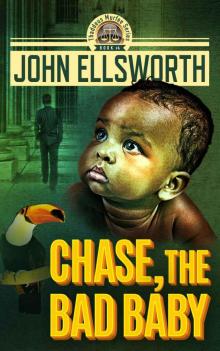 Chase, the Bad Baby: A Legal and Medical Thriller (Thaddeus Murfee Legal Thriller Series Book 4)
Chase, the Bad Baby: A Legal and Medical Thriller (Thaddeus Murfee Legal Thriller Series Book 4)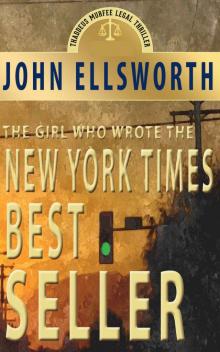 The Girl Who Wrote The New York Times Bestseller: A Novel (Thaddeus Murfee Legal Thrillers Book 8)
The Girl Who Wrote The New York Times Bestseller: A Novel (Thaddeus Murfee Legal Thrillers Book 8)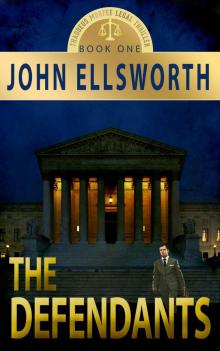 The Defendants: Crime Fiction & Legal Thriller (Thaddeus Murfee Legal Thriller Series Book 1)
The Defendants: Crime Fiction & Legal Thriller (Thaddeus Murfee Legal Thriller Series Book 1) Hellfire (Sisters In Law Book 2)
Hellfire (Sisters In Law Book 2) A Young Lawyer's story
A Young Lawyer's story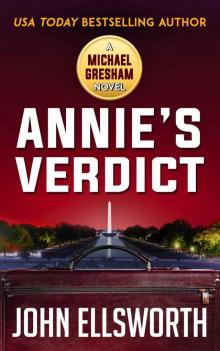 Annie's Verdict (Michael Gresham Legal Thrillers Book 6)
Annie's Verdict (Michael Gresham Legal Thrillers Book 6) Legal Thriller: Michael Gresham: Secrets Girls Keep: A Courtroom Drama (Michael Gresham Legal Thriller Series Book 2)
Legal Thriller: Michael Gresham: Secrets Girls Keep: A Courtroom Drama (Michael Gresham Legal Thriller Series Book 2)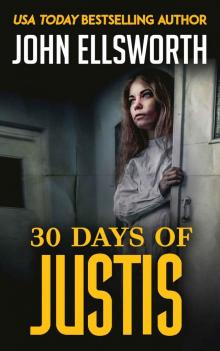 30 Days of Justis
30 Days of Justis Sakharov the Bear (Michael Gresham Legal Thrillers Book 5)
Sakharov the Bear (Michael Gresham Legal Thrillers Book 5)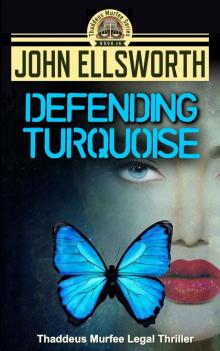 Defending Turquoise (Thaddeus Murfee Legal Thriller Series Book 5)
Defending Turquoise (Thaddeus Murfee Legal Thriller Series Book 5)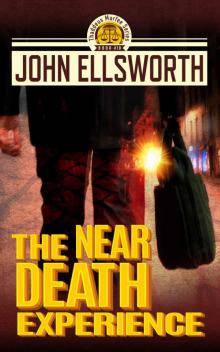 The Near Death Experience (Thaddeus Murfee Legal Thriller Series Book 10)
The Near Death Experience (Thaddeus Murfee Legal Thriller Series Book 10)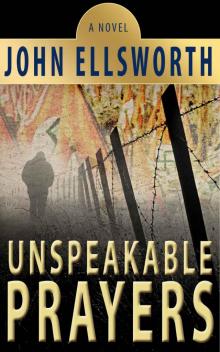 Unspeakable Prayers: WW II to Present Day (Thaddeus Murfee Series of Legal Thrillers)
Unspeakable Prayers: WW II to Present Day (Thaddeus Murfee Series of Legal Thrillers)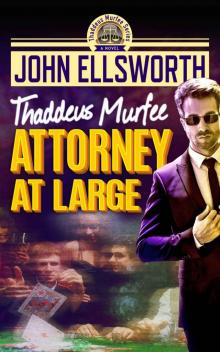 Attorney at Large (Thaddeus Murfee Legal Thriller Series Book 3)
Attorney at Large (Thaddeus Murfee Legal Thriller Series Book 3) The Law Partners (Michael Gresham Legal Thriller Series Book 3)
The Law Partners (Michael Gresham Legal Thriller Series Book 3)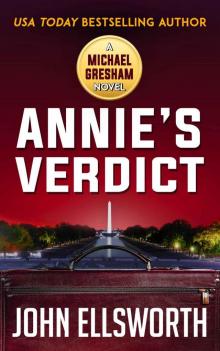 Annie's Verdict
Annie's Verdict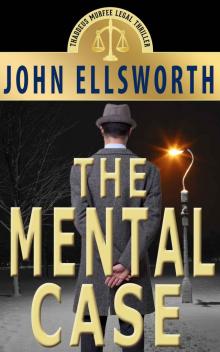 The Mental Case (Thaddeus Murfee Legal Thriller Series Book 6)
The Mental Case (Thaddeus Murfee Legal Thriller Series Book 6)